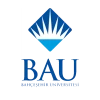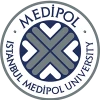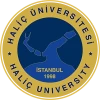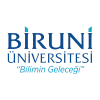In recent years, educational technology has become increasingly vital in shaping modern education systems. Turkey, with its dynamic education landscape and technological advancements, has emerged as a hub for studying educational technology.
This comprehensive article aims to provide an in-depth overview of studying educational technology in Turkey, including the educational system, renowned institutions, program offerings, career prospects, and the overall educational technology landscape.
The Turkish Education System
The Turkish education system is divided into four main levels: pre-primary education, primary education, secondary education, and higher education. Education in Turkey is compulsory for 12 years, starting from primary school until the end of secondary school. Higher education institutions, such as universities, offer various programs, including educational technology.
Educational Technology Landscape
Turkey's educational technology landscape is characterized by a growing emphasis on integrating technology into the education system. The government has implemented various initiatives, such as the FATIH Project, aimed at equipping schools with technology infrastructure and digital resources. The country also hosts conferences, exhibitions, and workshops focusing on educational technology, providing networking opportunities for students and professionals in the field.
Best Universities for Studying Educational Technology in Turkey
Turkey is home to several prestigious universities known for their strong educational technology programs. Some of the renowned institutions offering educational technology studies include:
- Middle East Technical University (METU)
METU's Department of Computer Education and Instructional Technology offers undergraduate and graduate programs in educational technology. It is considered one of the leading institutions in the field.
- Bogazici University
Bogazici University's Faculty of Education offers undergraduate and graduate programs in educational sciences, focusing on instructional technology and multimedia.
- Istanbul University
Istanbul University offers educational technology programs through its Faculty of Education. The programs emphasize the integration of technology in education and the design of multimedia materials.
- Hacettepe University
Hacettepe University offers a variety of programs related to educational technology, including instructional technology and distance education. The university is well-known for its research and development activities in the field.
Educational Technology Program Offerings in Turkey
Educational technology programs in Turkey are designed to equip students with the necessary skills and knowledge to integrate technology effectively in educational settings. The programs may vary in duration and level, including undergraduate, graduate, and doctoral programs. Some common areas of focus within these programs include:
- Instructional Design
Students learn to design and develop effective instructional materials and curricula using technological tools and methodologies.
- E-Learning and Distance Education
These programs explore the use of technology for delivering education remotely, including online courses, virtual classrooms, and interactive learning platforms.
- Multimedia and Interactive Learning
Students gain expertise in creating interactive learning materials, multimedia presentations, and educational software applications.
- Educational Game Design
Some programs focus on the design and development of educational games and simulations, incorporating gamification principles into the learning process.
- Educational Research and Evaluation
Students learn to conduct research and evaluate the effectiveness of educational technology interventions and innovations.
Educational Technology Career Prospects in Turkey
Graduates of educational technology programs in Turkey have a wide range of career prospects. They can work in various educational settings, including schools, universities, educational technology companies, and governmental organizations. Some common career paths include:
- Educational Technology Specialist
These professionals work in educational institutions and are responsible for integrating technology into teaching and learning processes, providing technical support, and developing digital learning resources.
- Instructional Designer
Instructional designers design and develop instructional materials, e-learning courses, and interactive multimedia resources for educational institutions, corporations, or e-learning platforms.
- E-Learning Developer
E-learning developers create online courses and learning management systems, ensuring the effective delivery of educational content and interactivity.
- EdTech Entrepreneur
Graduates with entrepreneurial ambitions can establish their own educational technology companies, developing innovative products and solutions to enhance learning outcomes.
- Researcher and Academic
Some graduates choose to pursue research and academic careers, contributing to the field through research, publishing academic papers, and teaching at universities.
Student Exchange Programs in Turkish Universities
The questions revolve around the possibility of studying at different universities in different locations outside or inside Turkey. The university offers several programs for local and international student exchange, the most important of which are: Erasmus program, Mevlana program, and Farabi program.
1. Erasmus Program
The Erasmus program is one of the important study programs that allow student exchange between European and other international universities. Turkey joined this program in 2003, and it is one of the easiest ways to study in Europe, where approximately 3 million students have participated since the program's inception.
The program offers financial support, opportunities to learn new teaching methods, learn a new foreign language, and discover new countries, their history, and civilization. To join the program, you must complete at least one academic year, have a GPA higher than 2, pass a language test, provide a personal photo, valid passport, grade report, and letter of recommendation.
2. Melvana Program
The Mevlana program, implemented in 2011, allows student exchange between universities in Turkey and within other countries. To apply for the program, you must complete at least one academic year, have a cumulative GPA higher than 2.5, pass a language test, provide a personal photo, valid passport, grade report, and two letters of recommendation that can be obtained from the university.
3. Farabi Program
The Farabi program allows students to exchange between Turkish universities without canceling their registration in their original university. To register for the program, you must complete at least one academic year (excluding the preparatory year), have a cumulative GPA higher than 2, and have the right to apply for only one university. This grant funds one semester with the possibility of completing further semesters.
Conditions for Studying Educational Technology in Turkey
- Public Universities
Admission to some Turkish government universities depends on success in the Turkish YÖS aptitude test or the SAT aptitude test, in addition to obtaining a high school diploma with a varying grade requirement depending on the university.
A TOEFL test and Turkish language proficiency test (TOMER) are required if the language of instruction is Turkish. If the student doesn't have a TOEFL or TOMER certificate, they will have to take a language proficiency test at the same university they're applying to if accepted. If the student passes, they start their first year of study immediately. If they fail, they have to undergo a preparatory year to learn the language.
- Private Universities
As for the study requirements in Turkish private universities, they don't require any additional conditions from students. It's enough to have a high school diploma with a grade of no less than 50%. When choosing to study in English, a preparatory year is taught, as well as when studying in Turkish.
Advantages of Registering through Turkey Campus
One of the main advantages that Turkey Campus offers to students when registering at Turkish universities include:
- The ability to sign contracts with private universities in Turkey, which guarantees foreign students' admission and a reduction in tuition fees upon acceptance.
- Turkey Campus provides multiple options for private and public universities, indicating available majors, annual fees, duration of study, and required registration documents.
- Based on each student's motivation, we offer tailored educational consultations for their specific situation.
- We guide students through all the necessary steps for official registration in the university and obtaining a student ID card.
- We also assist in securing suitable university housing and obtaining residence permits for students.
- We maintain continuous communication with students to provide advice and address any inquiries they may have.
Studying educational technology in Turkey offers a wealth of opportunities for students interested in the intersection of education and technology. With renowned institutions, diverse program offerings, and a dynamic educational technology landscape, Turkey provides a conducive environment for acquiring the knowledge and skills necessary to shape the future of education.
As the demand for educational technology professionals continues to rise globally, graduates from Turkish educational technology programs are well-positioned to embark on successful careers in this rapidly evolving field.
If you're interested in joining one of the universities in Turkey, we at Turkey Campus are pleased to offer you a helping hand and embark on the journey towards your future. Our team of experienced professionals will guide you through the entire application process to Turkish universities, starting from choosing the suitable program to submitting your application, securing your acceptance, and ensuring that you benefit from all available grants and discounts offered by the universities through us.





